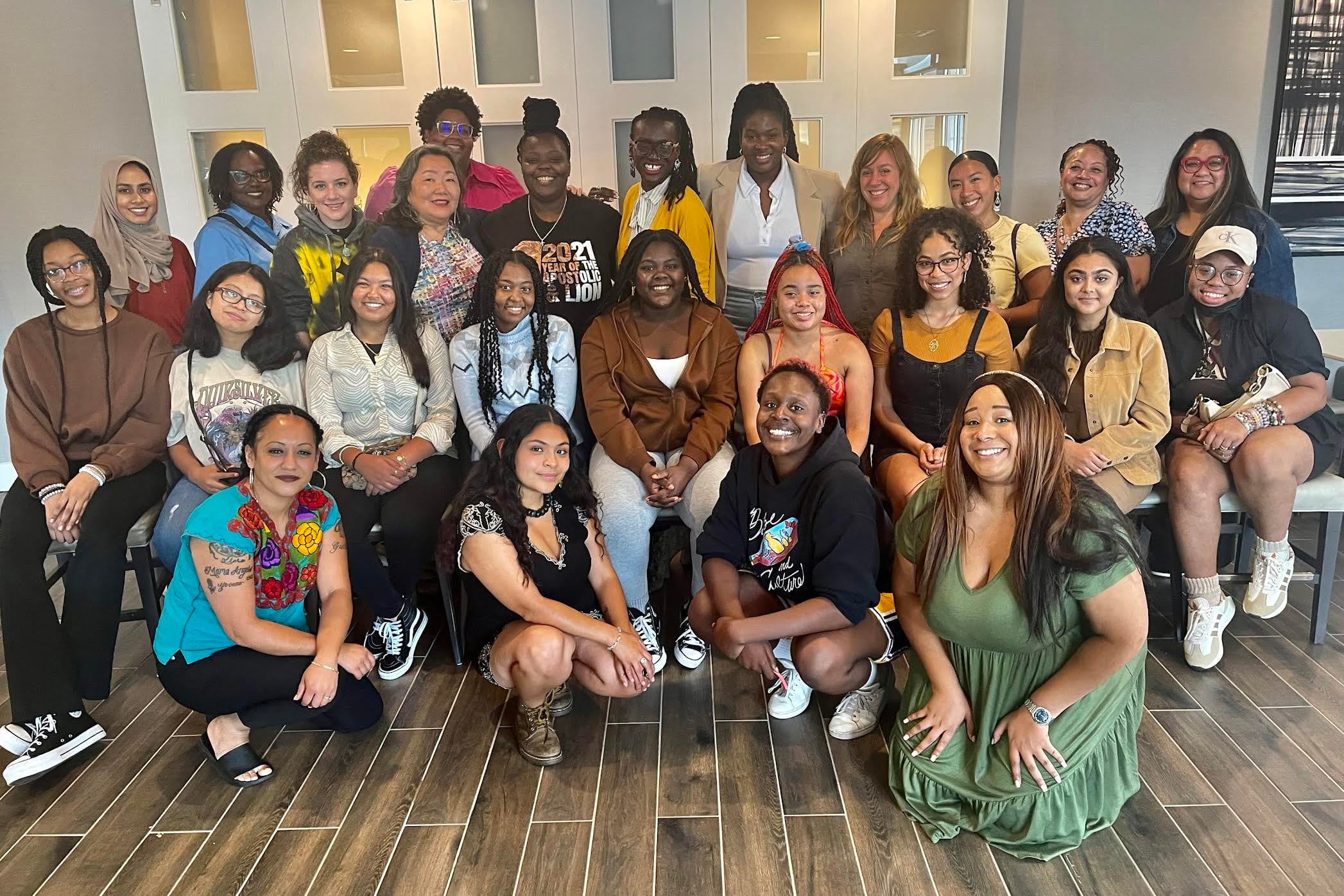Growing up in Ecuador, Karen Otavalo struggled to stay motivated in a country where opportunities did not come as easy for girls.
Otavalo paid attention in class, did her homework, and got good grades – the usual things students do to get ahead in school. But Otavalo, now a sophomore and a participant in Chalkbeat’s Student Voices Fellowship program, couldn’t help but feel something was missing from her education.
She wasn’t getting hands-on experience and opportunities to practice what she was learning, making her feel ill-prepared for her future.
Otavalo’s opportunities expanded when her family moved to the U.S. in 2018. Now, she is helping give other New Jersey girls the opportunities once out of reach for her.
She is one of 10 high school and college girls from New Jersey chosen to participate in a program designed to develop girls’ leadership skills. The New Jersey Justice Collaborative for Girls is a state-funded leadership and advocacy program that empowers young women to be leaders and is fueling Otavalo’s dreams to help vulnerable communities in the future.
After moving to the U.S., Otavalo and her family ultimately ended up in Newark, where she struggled to learn English and adapt to the culture. Despite the language barrier and a pandemic that disrupted her high school experience, Otavalo moved out of Newark’s English Language Learners program and to Science Park High School where, she says, her opportunities have been endless.
The N.J. Justice Collaborative for Girls, with funding from the state’s division on women, hired the 10 high school and college students, who also form part of a youth advisory board responsible to research, review, and analyze grant applications from nonprofit organizations looking to empower New Jersey youth through activities, programming, and outreach. Through the funding, the collaborative pays each girl $35 an hour for their work.
Under the guidance of the collaborative’s senior director, Aysha Khan, the girls were tasked with selecting three organizations, one in each geographical region in New Jersey, for a $30,000 grant to help expand leadership and advocacy opportunities for girls in the state.
It was important to have young women like Otavalo make these decisions, Khan said.
“Girls know what they want. They know the roadmap for what it takes for them to thrive,” Khan added. “It’s on us as adults in this space to take a step back and facilitate and organize a space for them to use their voice.”
The work started last summer when the collaborative first convened to receive training before delving into the applications. Each girl in the group was paired with a mentor, who helped guide them through the grant selection process and develop their passions or work on their self-esteem as they got to know each other.
The girls vetted grant applications from 10 organizations and dived into everything from their financial stability to their letters of recommendation and their plan to create empowerment programs for young girls. By September, the group had chosen the organizations.
Funding for this grant started with the federal Centers for Disease Control and Prevention’s Rape Prevention Education grant funds and was given to the N.J. Division on Women’s Rape Prevention Education program. The division then chose the collaborative to hire and organize the statewide group of teens to make the final decision on which nonprofits would get the grants.
As youth experts, the group also shared what they thought organizations should focus on. The discussions led the young teens to share their struggles and relate to similar experiences of marginalized girls in New Jersey and beyond the face. Some girls shared their feelings of being patronized and dismissed when they talked to school administrators and another mentioned holding back her opinions when adults were in the room, according to the collaborative.
“I felt very professional because before I was just learning from a PowerPoint presentation or a book and I felt like I wasn’t doing anything,” Otavalo said. “Like being actually involved in the choice of which organizations will be best for our community is really the outstanding experience that I got from this.”
Now, the girls are working on creating an evaluation component to analyze the long-term impact of the programs they funded. Most recently, Otavalo and her team presented their work at NGO Committee on the Status of Women forum, an annual symposium for nonprofits that runs parallel to the United Nations Commission on the Status of Women conference.
Although the program ends in December, Otavalo said the work she’s done so far inspired her to start her own youth leadership club at her high school. Her club will focus on an advocacy project every month starting with a clothing drive in April.
The young teen feels her opportunities have grown since moving to Newark and is looking forward to pursuing a career in humanities or international relations as a result of her work through the program.
“It was very eye-opening,” Otavalo said. “I’ve never been in a program like that before.”
Jessie Gomez is a reporter for Chalkbeat Newark, covering public education in the city. Contact Jessie at jgomez@chalkbeat.org.






